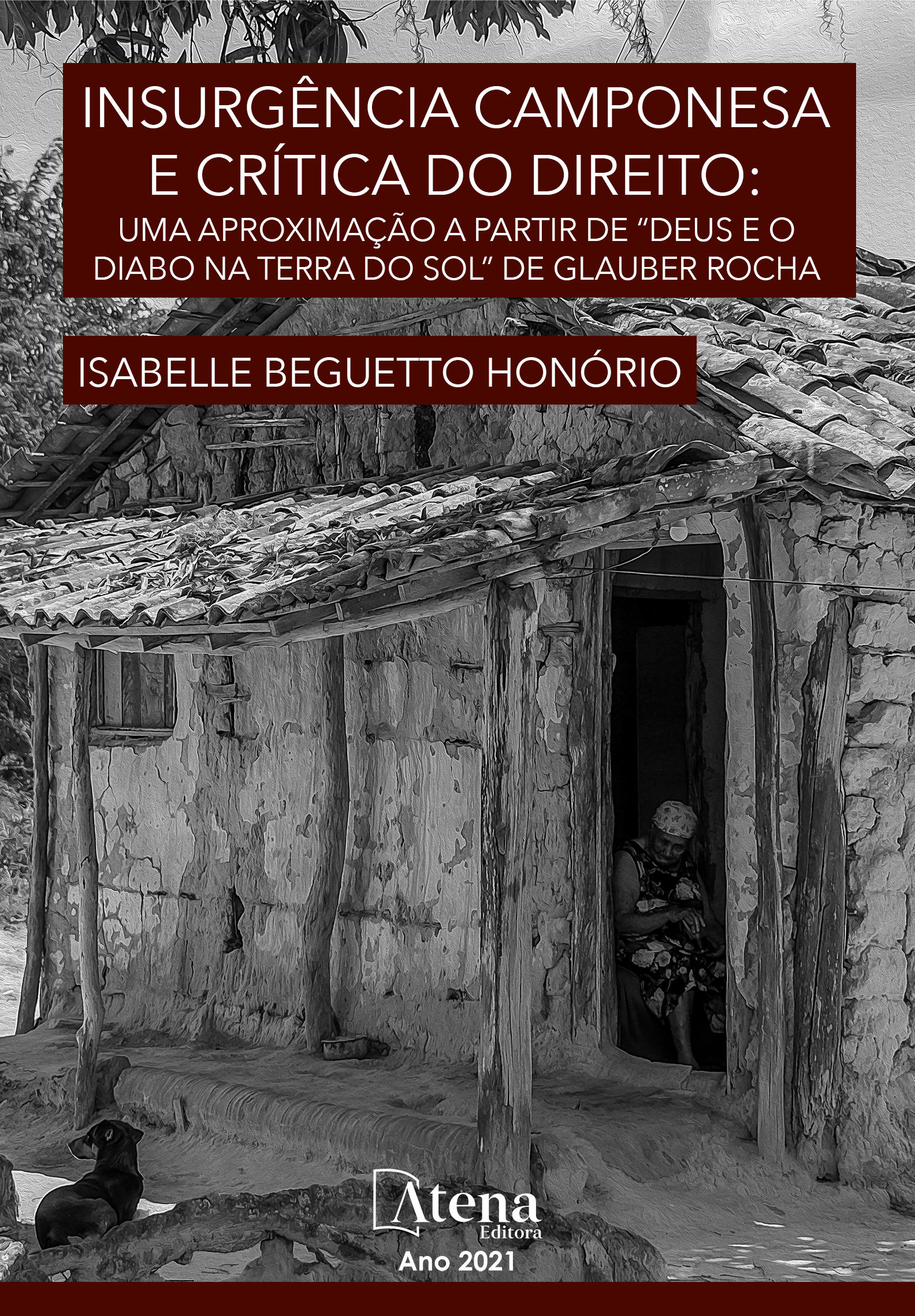
INSURGÊNCIA CAMPONESA E CRÍTICA DO DIREITO: UMA APROXIMAÇÃO A PARTIR DE “DEUS E O DIABO NA TERRA DO SOL” DE GLAUBER ROCHA
O presente trabalho propõe-se a estabelecer um diálogo entre o filme “Deus e o diabo na terra do sol”, de Glauber Rocha, e a teoria do direito insurgente. Em um primeiro momento, contextualiza-se a obra do cineasta brasileiro e seu papel na formação do movimento estético e político que se cristalizou no assim chamado Cinema Novo, aqui destaca-se a radicalidade política de sua proposta e o ímpeto revolucionário de suas demandas, especialmente contidos no manifesto "Estética da Fome". Na sequência, aborda-se um impasse entre as construções imagéticas habituais do citado movimento e a crítica realizada quanto à estereotipação dos sujeitos retratados. Para mediar essa contradição, lança-se mão da experiência concreta de movimentos populares, especialmente as Ligas Camponesas pelo proximidade histórica e regional com o cenário retratado no filme. Por fim, faz-se uma reinterpretação do filme à luz da teoria do direito insurgente.
INSURGÊNCIA CAMPONESA E CRÍTICA DO DIREITO: UMA APROXIMAÇÃO A PARTIR DE “DEUS E O DIABO NA TERRA DO SOL” DE GLAUBER ROCHA
-
DOI: https://doi.org/10.22533/at.ed.306212207
-
Palavras-chave: Deus e o diabo na terra do sol; Sertão; Ligas Camponesas; Direito à terra; Direito Insurgente.
-
Keywords: Black god, White devil; Sertão; Peasant Leagues; Land rights; Insurgent Law.
-
Abstract:
The present work proposes to establish a dialogue between Glauber Rocha's film “Black god, White devil” and the theory of insurgent law. At first, the work of the Brazilian filmmaker is contextualized and his role in the formation of the Cinema Novo aesthetic and political movement is explained. Here, the political radicality of his proposal and the revolutionary impetus of his demands stand out, specially found in his manifesto "Aesthetics of Hunger". Then, a standoff is approached between the movement's usual imagetic constructions and the criticism made by some scholars regarding the stereotyping of the subjects portrayed. In order to mediate this contradiction, we approach the concrete experience of popular movements, namely the Peasant Leagues due to its historical and regional proximity to the scenario portrayed in the film. Finally, the film is reinterpreted in the light of the theory of insurgent law.
-
Número de páginas: 56
- Isabelle Beguetto Honorio


